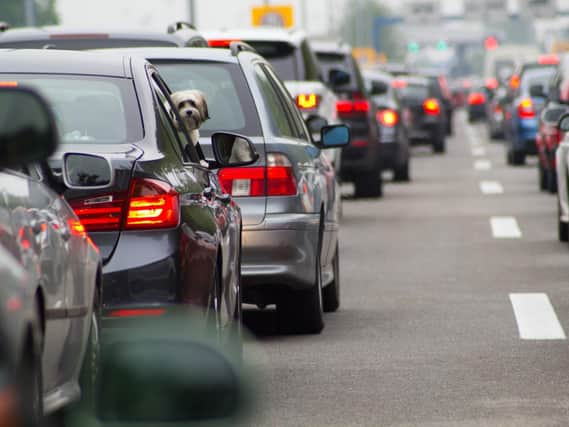Delays rise for city’s motorists as average speed drops - but what is the solution?


Statistics from the Department for the Transport (DfT) showed that in 2018 the average car speed on the city's A-roads was 17.7mph, down from 18.4mph in 2015.
This meant there was an average delay of 80.6 seconds per vehicle per mile - almost double the average in England of 47.3 seconds and up from 72.6 in the city three years prior. Nationally drivers were reaching speeds of 24.9mph on A-roads, and 27.8mph in Hampshire.
Advertisement
Hide AdAdvertisement
Hide AdPortsmouth City Council's assistant director for transport, Pam Turton, explained that some of this was due to the average 30mph limit in the city.
She said: 'Portsmouth has no A-roads where a national speed limit is applied. Typically, urban roads in cities experience slower traffic speeds in part due to congestion but also because these A-roads have higher numbers of side roads resulting in increased conflict between turning movements at junctions.'
For self-employed taxi driver Matt Cane, who is based in Havant, delays in the city have an impact on his job. 'I know that when I'm going for one job to another in Portsmouth it is going to take a lot longer than it would somewhere else,' the 38-year-old said.
'But when you're driving in a city like Portsmouth you do expect it, due to it being one of the most densely populated cities in the UK.'
Advertisement
Hide AdAdvertisement
Hide AdHe added: 'The roads outside the city have definitely become slower and more congested in that time though.
'It's good that we have bus lanes in the city that can also be used by taxis but I wonder if a system where cars can use them outside peak times would also work.'
Friends of the Earth coordinator for Portsmouth, Rachel Hudson, believed that encouraging more people to walk around the city was part of the solution. 'Walking is a great option for travel in the city,' she said.
'Not only does it reduce NO2 and CO2 emissions but it is better for people's health and wellbeing. However, the amount of traffic in Portsmouth puts people off because the streets are polluted and noisy.
Advertisement
Hide AdAdvertisement
Hide Ad'Wider pavements, benches and trees will help towards making Portsmouth a more pedestrian-friendly place.'
Part of the council's plan to tackle congestion and air pollution involves improving other modes of transport.
Ms Turton added: 'In the long-term, the council recognises the need to reduce the number of vehicles on our roads and encourage increased uptake of more sustainable travel modes such as bus, walking and cycling.
'Portsmouth has been shortlisted as one of 12 cities to bid for funding from the Transforming Cities Fund; which, if successful, will facilitate a new bus rapid transit network as well as improved walking and cycling connections across the city and into the wider area.'
Figures from the DfT were gathered using GPS data.